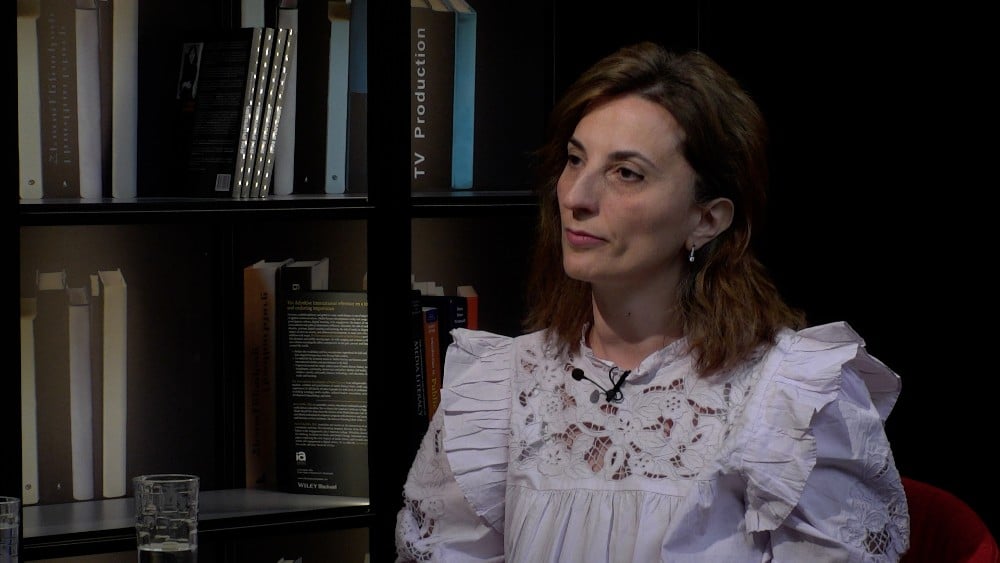The issue of fake information, disinformation, and other forms of fake news has become a significant challenge in our present-day information landscape. The widespread use of online news and social networks has further facilitated the rapid spread and expansion of misinformation in recent years.
In December 2023, the Concept and the Action Plan of the Struggle against Disinformation 2024-2026 were adopted to regulate information chaos and solve existing problems.
The documents were developed by the Freedom of Information Center of Armenia in cooperation with the Information and Public Relations Center and with the support of the Center for International Private Enterprise (CIPE). Media.am spoke with Shushan Doidoyan, president of Freedom of the Information Center.
The concept was developed over a period of two years. What is the main purpose of the resulting document?
The main goal of the concept is to provide a proper response against misinformation, so that we can prevent, reduce and neutralize the risks of misinformation. It envisages the scope, purpose, modern methods and tools for combating disinformation.
The strategy of the Government of Armenia against disinformation incorporates 3 strategic directions with a corresponding set of actions , which should guide the government in communicating with the public, the media and civil society.
First: strengthen the capacity of state institutions of Armenia in order to prevent, detect and analyze disinformation through capacity building programs.
Second: active engagement of the private sector and improvement of its transparency and accountability.
Third: raise awareness and education level on media freedoms and media literacy, thus “Fostering Public Resilience Against Disinformation: Our Core Goal”
These strategic directions have their own sub-goals and clear methods to achieve the end result. What steps will be taken to achieve them?
The first strategic direction is focused on enhancing the capabilities of state institutions. This can be achieved by improving the skills, knowledge, and abilities of public servants, especially those working in government communications, public relations, and information departments. By strengthening the capacities of state institutions, we can ensure better service delivery to citizens.
A self-assessment system will be implemented in the state administration system. This will enable state structures to periodically assess the problems they face in ensuring freedom of information. By doing so, they will be able to understand what reforms are needed to ensure full access to information. We are ready to provide support to state institutions in this regard. Currently, we are supporting a pilot program in the ministries of health, economy, and the Prime Minister’s staff.
The action plan also stipulated that official accounts on social media platforms should be institutionalized. What does this imply?
We believe that it is crucial to establish a clear set of guidelines for social media presence and behavior, and ensure that all government bodies adhere to them. This includes maintaining a consistent communication style across all official accounts, with a unified vocabulary and thought process. To achieve this, we plan to implement various tools over the next two years.
Having ethical codes of conduct is crucial to ensure that officials who use social media understand the boundaries of acceptable behavior. For instance, it’s important to determine when it’s appropriate to post on social platforms and when it’s not. Often, we see social media posts made during working hours that spark heated discussions, which can be avoided if officials follow ethical guidelines.
How will the mobilization of the private sector be conducted, and what are your expectations from this cooperation?
We anticipate a high level of collaboration with private businesses, including those involved in IT and research. We value everyone’s unique role and participation in this field. For instance, IT experts can provide innovative solutions and tools to detect and prevent the spread of disinformation on social media and news websites.
An essential strategy to combat disinformation is to enhance media literacy. Educational programs should be aimed at achieving this goal. It’s the responsibility of every member of society to be educated on this matter. The ultimate objective is to create a collective response against disinformation. Every individual should be prepared, competent, and capable of identifying, countering, preventing, and neutralizing misinformation.
We have set specific goals and sub-goals, each with its own indicators of success to measure our progress. To ensure that the implementation process is closely monitored and guided, we have adopted a multi-stakeholder working group model. This group includes representatives from the state, civil society, and the private sector, and all decisions regarding the implementation of this document will be made collectively.
All available resources will be mobilized to ensure the viability of the document through universal intervention, without limiting the number of participating groups.
The availability of financial resources is crucial to ensure the successful implementation of any project. What guarantees are in place to ensure the project will be realized?
Two crucial components are necessary for every project: human resources and financial backing. Without these two essential tools, every brilliant idea will remain on paper.
I believe that adequate human resources are available to implement the document. Over the last ten years, civil society has developed a well-formed human resource base. The document can be implemented successfully as long as there is sufficient financial backing.
The discussions that went on for nearly two years focused mainly on financial resources and allocations. The fact that the Prime Minister’s decision adopted the document implies that the state has committed to supporting and guaranteeing the document’s viability in financial terms. I am delighted to say that international donor organizations are also interested in the implementation of this document. Some of them have already expressed their willingness to support the implementation of certain components of the document.






